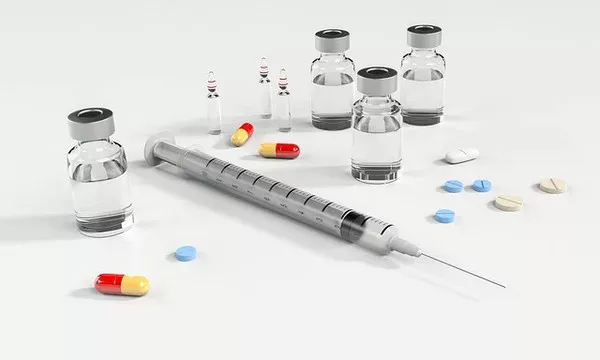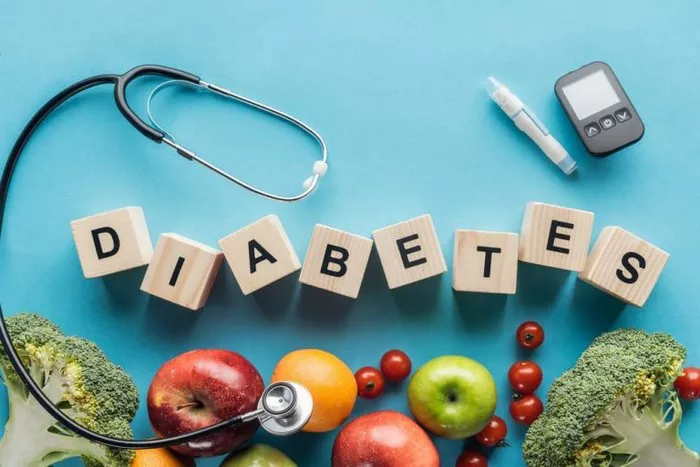Type 2 diabetes is a chronic condition that affects millions of people worldwide. Managing it effectively requires a combination of lifestyle changes, regular monitoring, and medication. However, the cost of medication can be a significant barrier for many patients. In this article, we will explore the cheapest type 2 diabetes medicines, their effectiveness, and how they compare to more expensive alternatives. Our aim is to provide comprehensive information to help patients and healthcare providers make informed decisions about diabetes management.
Overview of Type 2 Diabetes
Type 2 diabetes is characterized by insulin resistance and the pancreas’s inability to produce sufficient insulin. This leads to elevated blood glucose levels, which can cause serious complications if not managed properly. Symptoms of type 2 diabetes include increased thirst, frequent urination, hunger, fatigue, and blurred vision. Long-term complications can affect the heart, kidneys, eyes, and nerves.
The primary goals in managing type 2 diabetes are to maintain blood glucose levels within a target range, prevent complications, and improve overall health. Treatment usually involves lifestyle modifications such as diet and exercise, along with medications.
Common Medications for Type 2 Diabetes
There are several classes of medications used to treat type 2 diabetes, including:
- Biguanides
- Sulfonylureas
- Thiazolidinediones
- DPP-4 Inhibitors
- GLP-1 Receptor Agonists
- SGLT2 Inhibitors
- Insulins
Each class works differently to control blood glucose levels. When considering the cost, it’s important to compare their prices and effectiveness.
The Role of Cost in Diabetes Management
Cost is a significant factor in diabetes management, particularly for those without insurance or with high out-of-pocket expenses. The price of medication can affect adherence to treatment, with patients often skipping doses or not filling prescriptions due to cost. Therefore, finding affordable medication options is crucial for effective diabetes management.
The Cheapest Type 2 Diabetes Medicine: Metformin
Metformin: The Gold Standard
Metformin, a biguanide, is the most commonly prescribed and affordable medication for type 2 diabetes. It is often the first-line treatment due to its effectiveness, safety profile, and low cost. Metformin works by reducing hepatic glucose production and improving insulin sensitivity, which helps lower blood glucose levels.
Cost Analysis
Generic metformin is widely available and typically costs between $4 and $10 for a month’s supply at many retail pharmacies. This makes it one of the most cost-effective options for diabetes management. In comparison, newer medications such as SGLT2 inhibitors and GLP-1 receptor agonists can cost several hundred dollars per month.
Effectiveness and Safety
Metformin has been extensively studied and proven effective in lowering blood glucose levels and reducing HbA1c by about 1-2%. It also has a favorable safety profile, with gastrointestinal side effects like nausea and diarrhea being the most common. Rarely, it can cause lactic acidosis, a serious condition, but this is uncommon when prescribed appropriately.
Additional Benefits
Beyond glycemic control, metformin has other benefits. It is associated with weight loss or weight neutrality, which is advantageous for many patients with type 2 diabetes who are overweight or obese. Additionally, some studies suggest that metformin may have cardiovascular benefits and reduce the risk of certain cancers.
Comparing Metformin to Other Medications
While metformin is the cheapest option, it’s important to compare its effectiveness and side effects to other medications.
Sulfonylureas
Sulfonylureas, such as glipizide and glyburide, are another class of inexpensive diabetes medications. They work by stimulating the pancreas to produce more insulin. The cost of generic sulfonylureas is comparable to metformin, often around $4 to $15 for a month’s supply.
However, sulfonylureas are associated with a higher risk of hypoglycemia (low blood sugar) and weight gain, which can be problematic for some patients. They are generally effective in reducing HbA1c by about 1-2%, similar to metformin, but their side effect profile makes them less favorable as a first-line treatment.
Thiazolidinediones (TZDs)
TZDs, such as pioglitazone, are another option. They work by improving insulin sensitivity in muscle and adipose tissue. Generic pioglitazone is relatively inexpensive, costing around $10 to $20 per month.
TZDs can reduce HbA1c by 0.5-1.5% and are generally well-tolerated. However, they are associated with weight gain, fluid retention, and an increased risk of heart failure. Due to these concerns, they are often used as second-line treatments.
DPP-4 Inhibitors
DPP-4 inhibitors, such as sitagliptin and saxagliptin, are newer medications that work by increasing the levels of incretin hormones, which help regulate blood glucose. These medications are typically more expensive, with costs ranging from $200 to $300 per month.
While they are effective in lowering HbA1c by about 0.5-1%, they are generally considered less potent than metformin. They are also weight-neutral and have a low risk of hypoglycemia, making them suitable for patients who need additional glycemic control without the risk of weight gain or hypoglycemia.
GLP-1 Receptor Agonists
GLP-1 receptor agonists, such as liraglutide and exenatide, are injectable medications that mimic the incretin hormone GLP-1. They are effective in lowering HbA1c by 1-1.5% and are associated with weight loss, which can be beneficial for patients with type 2 diabetes.
However, these medications are significantly more expensive, with costs ranging from $300 to $800 per month. They are generally reserved for patients who need additional glycemic control and can afford the higher cost or have insurance coverage.
SGLT2 Inhibitors
SGLT2 inhibitors, such as empagliflozin and canagliflozin, work by preventing glucose reabsorption in the kidneys, leading to glucose excretion in the urine. They are effective in lowering HbA1c by 0.5-1%, promote weight loss, and have cardiovascular benefits.
The cost of SGLT2 inhibitors is also high, typically ranging from $300 to $500 per month. These medications are often used as add-on therapy for patients who require additional glycemic control and can afford the higher price.
Strategies for Reducing Medication Costs
For patients who need additional medications beyond metformin, there are several strategies to reduce costs:
Generic Options: Always opt for generic versions of medications when available, as they are significantly cheaper than brand-name drugs.
Patient Assistance Programs: Many pharmaceutical companies offer assistance programs for patients who cannot afford their medications. These programs provide free or discounted medications to eligible patients.
Prescription Discount Cards: These cards can offer significant savings on prescription medications and are available through various organizations and pharmacies.
Insurance Coverage: Ensure that you have adequate prescription drug coverage through your health insurance plan. Some plans have formularies that list preferred medications with lower copayments.
Mail-Order Pharmacies: These pharmacies often offer lower prices for a 90-day supply of medications compared to traditional retail pharmacies.
Comparison Shopping: Prices can vary between pharmacies, so it’s worth checking prices at different locations, including online pharmacies.
Lifestyle Changes and Non-Pharmacological Interventions
While medications are essential for managing type 2 diabetes, lifestyle changes play a critical role in controlling blood glucose levels and improving overall health. Here are some key lifestyle modifications:
Diet: A balanced diet that is rich in fruits, vegetables, whole grains, lean proteins, and healthy fats can help manage blood glucose levels. Patients should focus on portion control and choosing low-glycemic index foods that do not cause rapid spikes in blood sugar.
Exercise: Regular physical activity helps improve insulin sensitivity and lowers blood glucose levels. Patients should aim for at least 150 minutes of moderate-intensity exercise per week, such as walking, cycling, or swimming.
Weight Management: Losing weight can significantly improve blood glucose control and reduce the need for medications. Even a modest weight loss of 5-10% of body weight can have a positive impact.
Monitoring: Regular monitoring of blood glucose levels helps patients understand how their diet, exercise, and medications affect their blood sugar. This information can be used to make informed decisions about treatment and lifestyle adjustments.
Education and Support: Diabetes education programs and support groups can provide valuable information and encouragement. These resources help patients understand their condition and stay motivated to manage it effectively.
See also:What Is The Safest Type 2 Diabetes Medication
Conclusion
Metformin stands out as the cheapest and most effective first-line medication for type 2 diabetes. Its low cost, proven efficacy, and safety profile make it an ideal choice for many patients. While other medications can offer additional benefits, they come at a higher cost, making them less accessible for patients without comprehensive insurance coverage.
By combining affordable medications like metformin with lifestyle changes and utilizing cost-saving strategies, patients with type 2 diabetes can achieve optimal glycemic control and reduce the risk of complications. Healthcare providers play a crucial role in guiding patients towards effective and affordable treatment options, ensuring that cost does not become a barrier to proper diabetes management.
Related topics:
What Is The Most Common Medication For Diabetes



























